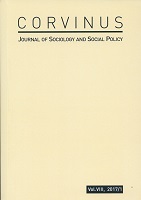
Theorizing in Social Science: The Context of Discovery by Richard Swedberg
THEORIZING IN SOCIAL SCIENCE: THE CONTEXT OF DISCOVERY BY RICHARD SWEDBERG (STANFORD, STANFORD UNIVERSITY PRESS, 2014)
More...We kindly inform you that, as long as the subject affiliation of our 300.000+ articles is in progress, you might get unsufficient or no results on your third level or second level search. In this case, please broaden your search criteria.

THEORIZING IN SOCIAL SCIENCE: THE CONTEXT OF DISCOVERY BY RICHARD SWEDBERG (STANFORD, STANFORD UNIVERSITY PRESS, 2014)
More...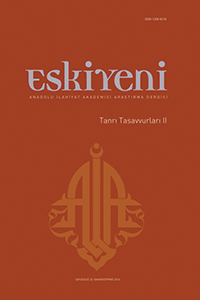
Giriş: Değerlendirmenin/Eleştirinin Bilimselliği ve Ahlakiliği Üzerine II Bu konuya dair kanaatlerimizin ilki, başka bir çalışma bağlamında ifade edildi. Burada ise (yapıcı) eleştirinin metin üzerindeki etkisi ve değerlendirme sonrası ortaya çıkacak entelektüel kaygıların içeriğine dair bir takım analizler ve betimlemeler içerisinde olunacaktır. Eleştiri tabiatı gereği, öznelliği içerisinde barındırır. Öznelliği içerisinde barındırmayan her hangi bir önermenden de ne kadar söz edilir, bu da ayrı bir tartışma konusudur. Buradan hareketle, öznellik sorununun bilgi kalitesini etkilemesi, yapacağımız analizlerin varlık, bilgi ve değer boyutlarını bu etki bağlamına alacağı bilinmelidir. Bu sebeple, değerlendirmelerimizin bilimselliğini ya da ahlakiliğini tartışmamız, meseleyi, eleştirmenin ya da değerlendirmenin semantik içeriği ile sınırlandırmaz; doğrudan bizi, bilginin mahiyeti ve insaniliği üzerine sorgulamaya götürür.
More...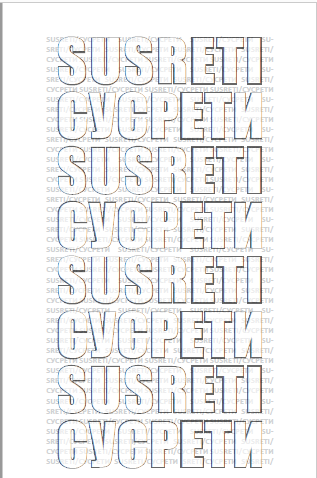
Francuski dokumentarni film o Pjeru Burdijeu naslovljen je po njegovoj izreci: “Sociologija je borilački sport”. Kada je umro u januaru 2002. smatrao se vodećim sociologom Francuske, njenim najuticajnijim intelektualcem i jednim od njenih najgnevnijih ljudi.
More...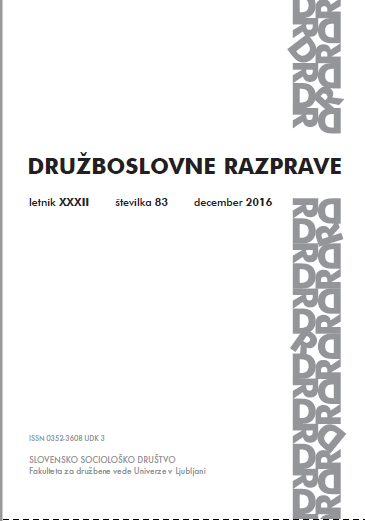
The perspective of growing interdisciplinarity implies the need to establish sociology’s position within an even more ‘interdisciplinary environment’ of contemporary science. Sociology’s relationship with other sciences is intimately intertwined with several types of issues scrutinised here: a) the modalities of interdisciplinary conjunctions; b) the attributes of levels at which interdisciplinary cooperation may appear; c) what sociology can provide to and what it may require from other disciplines; and d) potential advantages of participation in interdisciplinary scientific ventures, as well as their possible hazards. Further, the preference for multidisciplinarity as a ‘softer’ variant of interdisciplinary connection is emphasised. Finally, the urgency pertaining to the disciplinary uniqueness of sociology, due to its capability to adequately answer a vast number of social challenges today, is underlined.
More...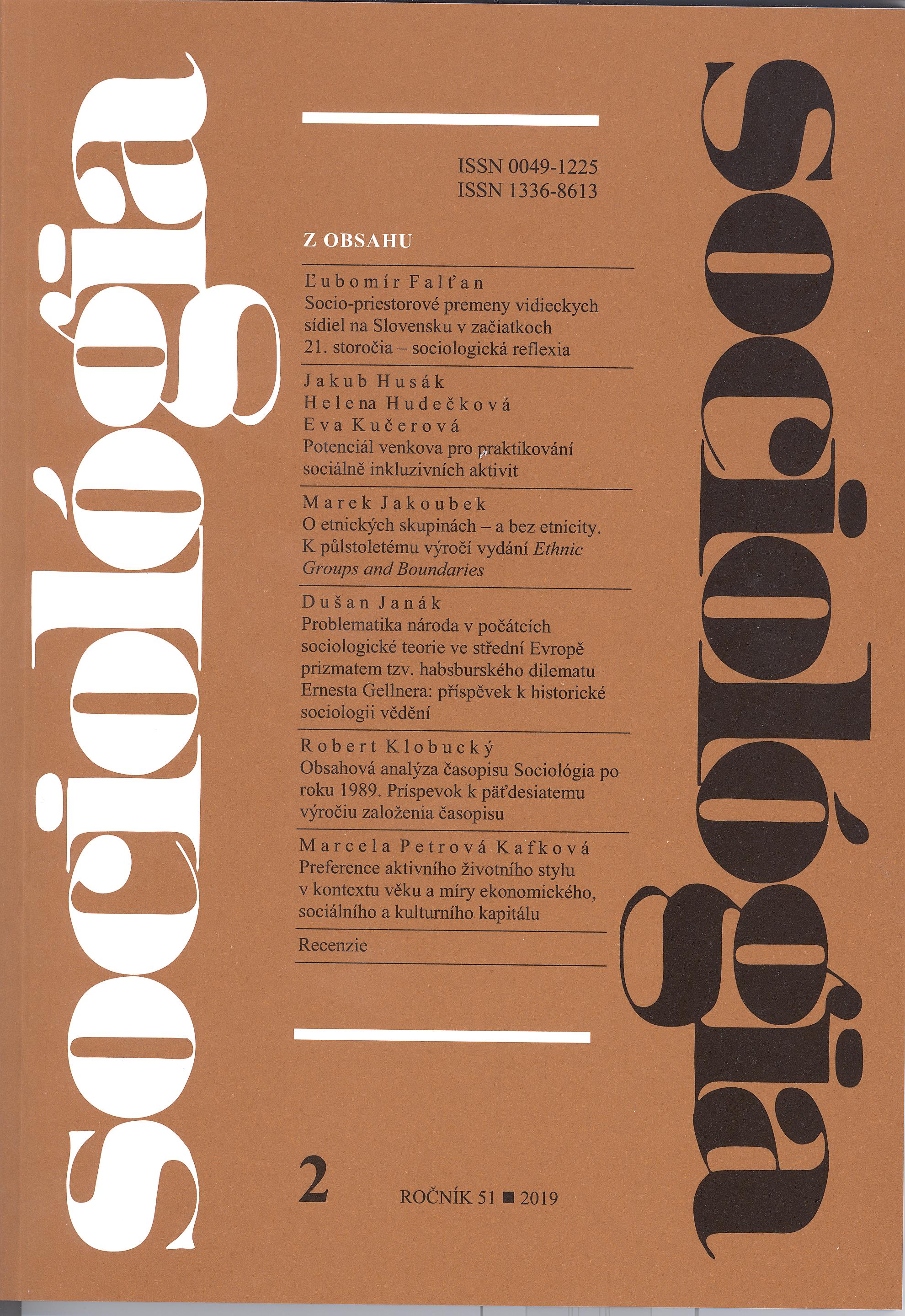
This article contains a content analysis of the main Slovak sociological journal Sociológia/Slovak Sociological Review in the three decades after the political change (1990 – 2019). It presents the structure of authors and themes in Sociológia / Slovak Sociological Review in a temporal perspective. Probably the most interesting trend is the increase in the number of Czech authors and decrease in the number of Slovak authors. The great range of metareflection on sociology itself and on some nationally-specific themes like the transformation of society or the history of Slovak sociology (mostly in the 90’s) is also notable. Recent developments suggest the popularity of other themes like political sociology, the sociology of education or sociological theory.Sociológia 2019, Vol. 51 (No. 2: 179-197)
More...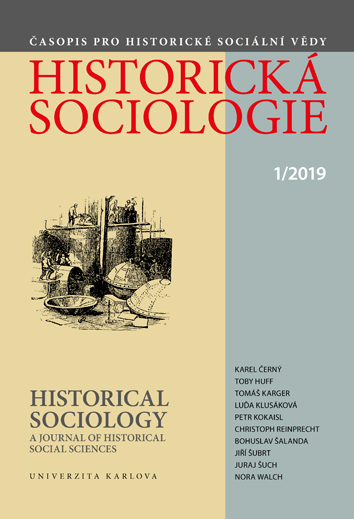
The present article pursues two main objectives: to highlight the possibly unstable perception of belonging to a particular ethnic group and, through the example of the USSR, to show how state interventions facilitated the integration of different ethnic groups into a new Uyghur group. It will also explain how such interventions can facilitate assimilation or, conversely, act against it. Like other USSR nations, the Uyghur nation was constructed as the result of a political decision; however, the primordialist aspect has always been emphasised, according to which the nation should have existed forever. The Uyghur ethnonym, although adopted following a decision taken by Soviet power, became the designation of a large nation over subsequent decades and most Uyghurs now live outside the former USSR. The concept of a unified Uyghur nation was also adopted by both China and the Uyghur movement after World War II. Although the state has the means to construct a new nation, a number of other factors can change its efforts entirely; this is shown in the paper through the example of two Kyrgyz regions populated by the Uyghur minority.
More...
The author of the article points out the main shifts in Hayden White’s reflection on narrative history writing. These shifts are related to his emphasis on the role of tropes and figures in dealing with the problem of narrative representation in the past. In the author’s view, White’s works challenge a traditional understanding of history, while stressing terminal validity and plurality in narrative representations of historical reality. He also points out that Czech and Slovak scholars used some aspects of Hayden White’s understanding of history for explaining different representations of history.
More...
Istoriju pišu pobednici, iako ne pobeđuje uvek um. Zato ima različitih istorija, starih i novijih, ili prepravljenih. Ovde će se podrazumevati samo istorija u svom čistom obliku, kao delo uma.
More...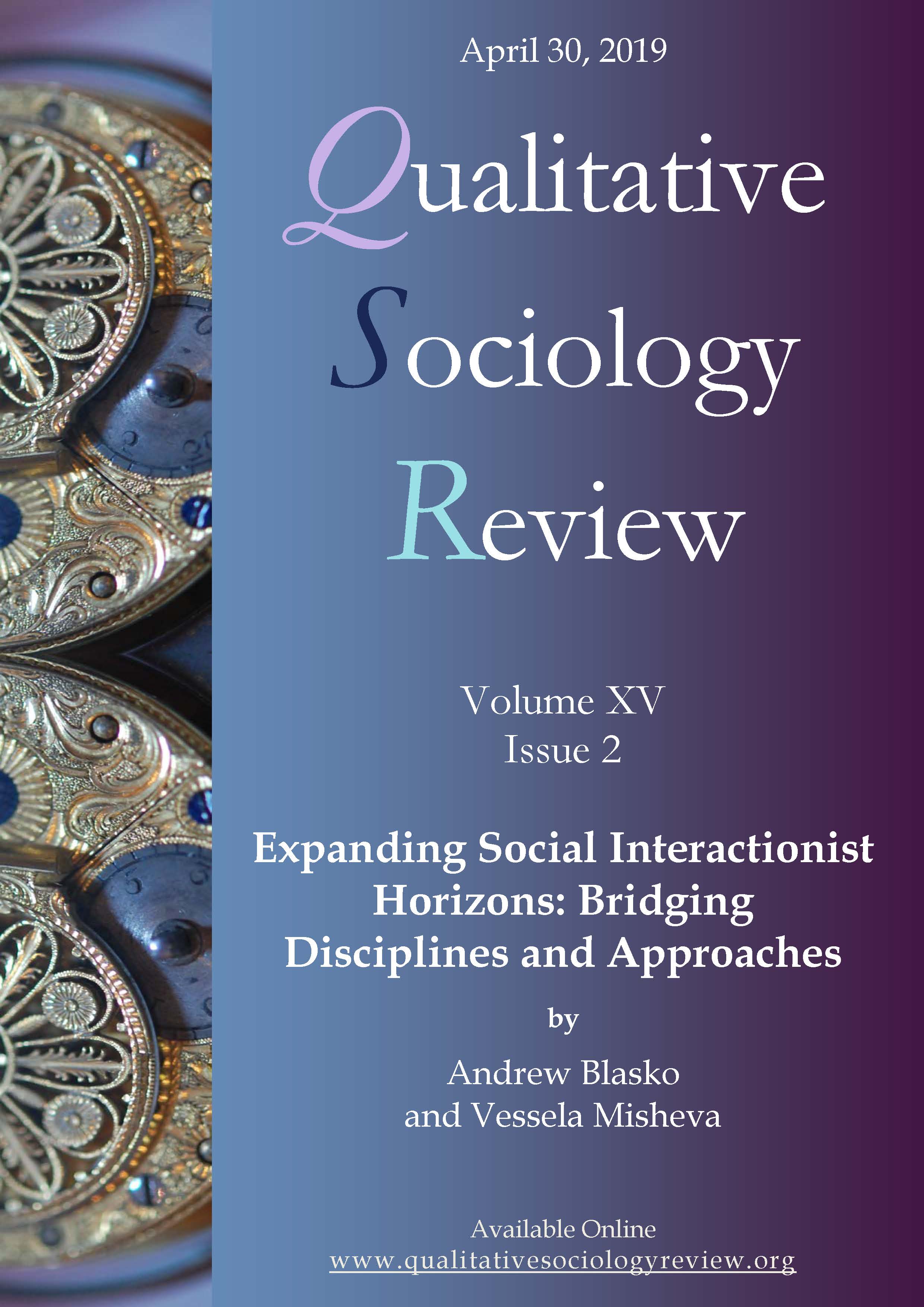
The present work is the beginning of a discussion that again addresses the question of Jane Addams’ sociological heritage. That latter is defined as a puzzle which may finally have a solution in that all of the pieces now appear to have been collected. The approach taken to recovering Addams’ identity as a sociologist involves a historico-sociological exploration of the influences upon the formation of her sociological thought, with a focus on Auguste Comte, the Father of Sociology. The article argues that Addams emulated Comte’s scientific mission and took upon herself the task of continuing his project by following another route to the goal. She is thus Comte’s successor, and even rival, insofar as she sought to establish sociology as a science that may be placed in charge of producing knowledge about social life and has the social mission of finding solutions to social problems that politicians proved incapable of tackling. Addams emerges from the discussion as the creator of a sociological paradigm that was dismissed, dismantled, and then lost in the process of the scientific revolution that took place unnoticed after the end of World War I, when the normal period of the scientific development of sociology in America came to an end. The suppression during the 1920s of the type of sociology that Addams developed and adhered to has left sociology in a state of unresolved identity crisis and arrested scientific development.
More...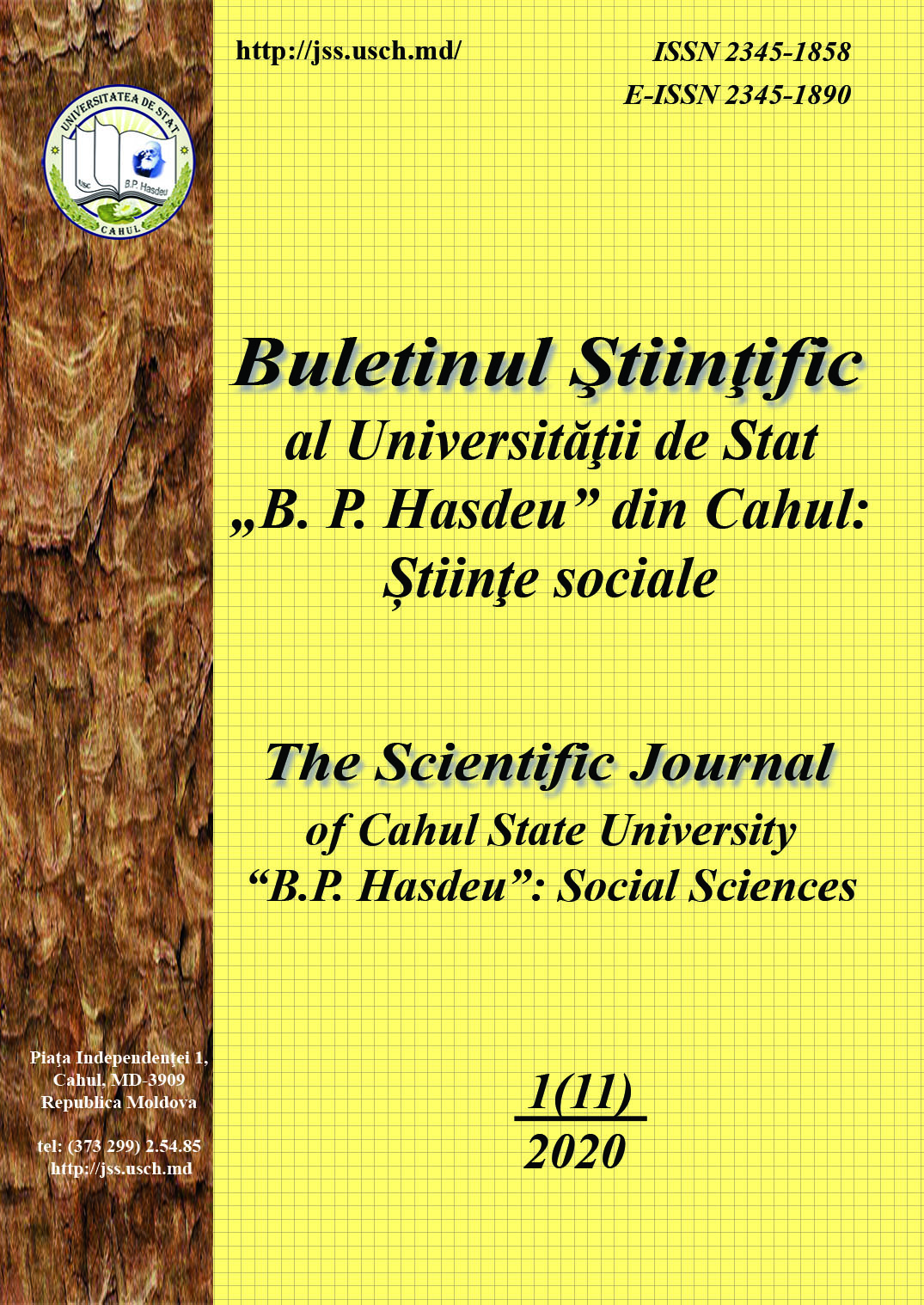
The study addresses the issue of reflecting the activity of the Romanian Social Institute of Bessarabia (1934-1940) on the pages of specialized journals published by the Romanian Social Institute of Bucharest (1921-1948): Archive for Science and Social Reform (1919-1943 ) and Romanian Sociology (1936-1944), which were the first journals in the social field from Romania. It is mainly emphasized the contribution of the central journals to the dissemination of the scientific research activity results, carried out in Bessarabia by the regional Social Institute. In addition, it includes some implications of the Bessarabian intellectuals in the Romanian scientific and cultural life, and certain studies of the local researchers involved in the monographic researches of the regional institution.The content of the materials published in these journals, signed by authors from Bessarabia or outside the province, is of interest to readers, eager to know objectively and documented not only the activity of the Romanian Social Institute of Bessarabia, but also social life and general evolution of the Bessarabian province during its 22 years of being within the Romanian unitary state.
More...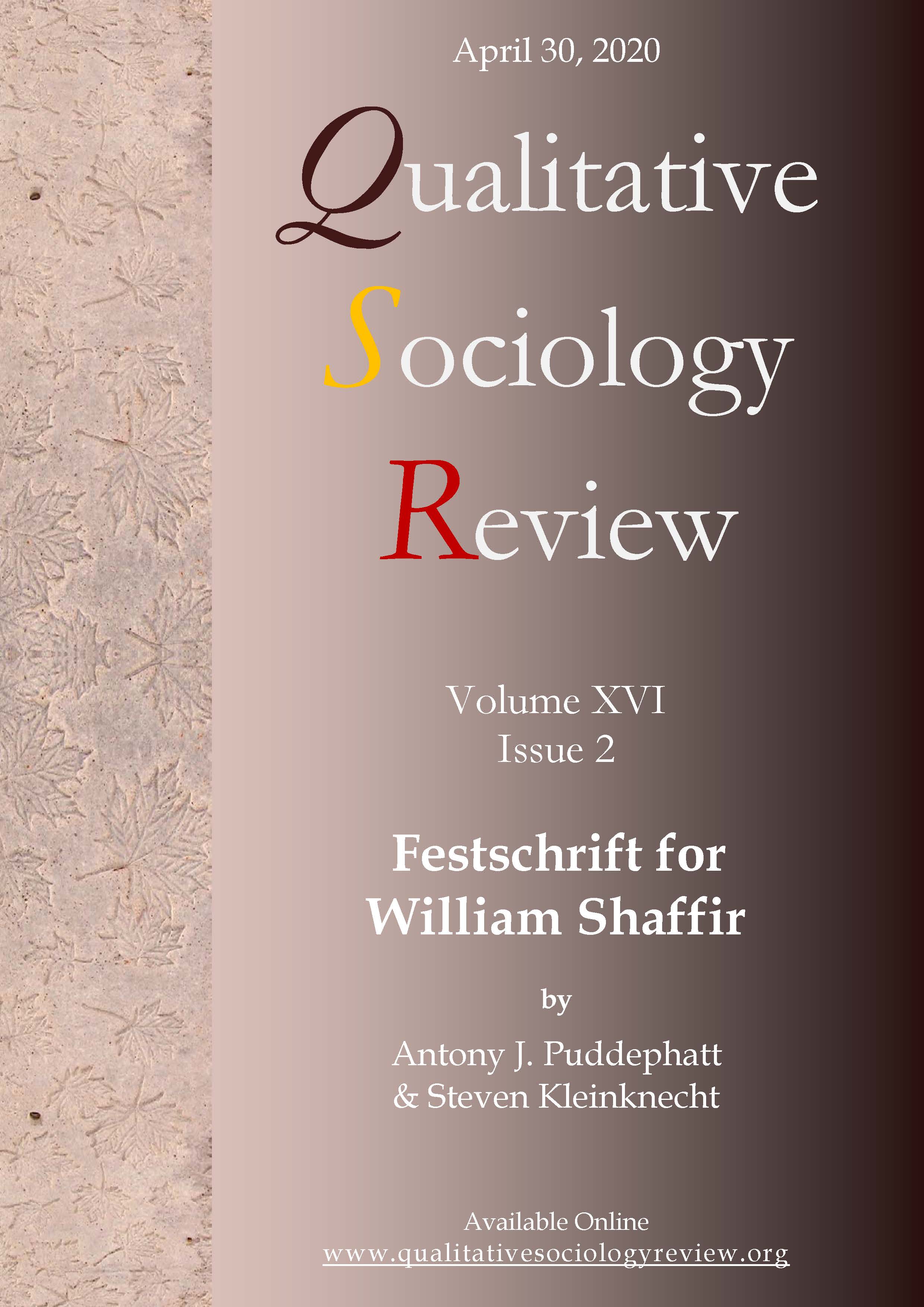
To write a sociological festschrift for a scholar necessarily means looking at a chain of influence instead of one person. In this essay, I honor William Shaffir, Emeritus Professor of Sociology at McMaster University, who taught me as I worked towards the MA. I examine what I learned from him by starting with my undergraduate experiences at McGill University, where Billy (I never heard anyone call him William) received his PhD. We shared influences there, including those who had studied with Howard S. Becker at Northwestern University. I then turn to my time at McMaster, and how Billy strengthened my knowledge of symbolic interactionism and qualitative methods, as well as taught me important lessons about writing. He also reduced graduate students’ anxieties, including mine, through two words: “No problem.” My experiences with Billy provided a model of mentoring that challenged the usual hierarchy between graduate students and professors. Those lessons were reinforced as I pursued a PhD at the University of Minnesota and spent two quarters at Northwestern University as a visiting student. These connecting influences helped me write and teach sociology in a largely quantitative department at the University of North Carolina-Chapel Hill, where I lacked the kind of support I had received as an undergraduate and graduate student. I taught there over 37 years, practicing the kind of sociology and mentoring that Billy generously modeled so many years ago.
More...
The choice of a work career is one of the most important events in a person’s life course and typically involves secondary socialization and identification with role models. This paper is concerned with the crucial role of my PhD dissertation supervisor at McMaster University, Dr. Billy Shaffir, in my choice of an academic career. I highlight and celebrate how, through the guidance of Dr. Shaffir, I experienced “immersive socialization” into field research and happily converted from an intended business career to an academic career.
More...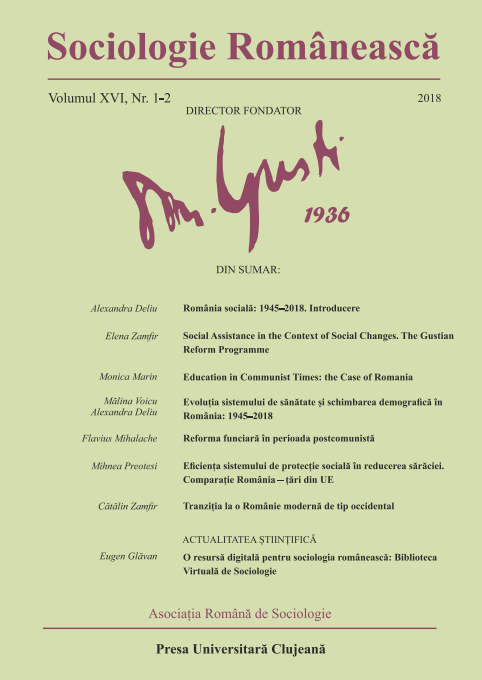
The present study is a brief incursion into the history of social assistance in Romaniaand its role in social changes. In this context, the contribution of the Sociological School ofBucharest founded by D. Gusti is emphasised with respect to the emergence of the modernstatues of social assistance as distinct institutional field, and specialised profession. DimitrieGusti, a man of remarkable professional-scientific openness (studies of philosophy, sociology,ethics, social and political sciences, social statistics, etc.) was the promoter of a wide SocialReforms Programme based on the positions of scientific knowledge regarding society. It had ascore objective to guide the evolution process of Romania on a modern development path. Atthe core of an extended programme of reforms laid also the assumption of the socialresponsibility of sociology and socio-humane sciences. Sociology emerges according to theGustian vision as one of the fundamental social sciences involved in the processes of changingthe society. As “sociologia militans”, it is in the service of the nation and of the community.Next to sociology, social assistance’s transformative function plays an essential role inapproaching, solving, and preventing severe social phenomena. The changes demanded byRomania’s modernisation had also perverse effects at social, human, and moral level bymultiplying/emerging risks generating marginalisation, and social exclusion for a good part ofthe society. Thus, sociology and social assistance (centred on supporting vulnerablecommunities/individuals) gained a completely particular role in the reform model proposed bythe Sociological School of Bucharest. Here, social and socio-humane sciences were regardedas not only active tools for gaining knowledge about the society, but also as efficientintervention and change means. Due to their technicality and professionalism, social andhumane sciences in general, and sociology and social assistance in particular were regarded inthe process of social change as true “social and human engineering” (Zamfir, 1981). Thus, theSociological School of Bucharest created by D. Gusti and supported by cultural and politicadministrativeinstitutions mobilised also a wide collective of experts, and intellectuals of multiandinterdisciplinary openness, men with wide-ranging cultural perspective, as demanded bytransformative processes. The objectives of the Gustian reform project were structured clearlybased on a general theory of the social system. They were guided with priority on knowledgeabout the society starting with empirical research regarding local communities, as such.Focusing on field research regarding the reality of the communities in their entirety,underpinned the idea that villages developed historically, as distinct social entities.Consequently, their research and knowledge about them imposed the monographic-typeanalysis. In the vision of the Sociological School of Bucharest, the village and the communitiesbecome sure milestones of social development and activism. In this context, social assistanceplays a central role not only in recording the needs of the vulnerable ones, but also in solvingtheir specific issues by multiple approach. This participative instance of social intervention andsupport work at the community and individual level is sustained by “action-research”. Thus,taking into account its multiple levels of practical intervention in social reality, assistance gainsalso a special mission of prevention and diminishing modern risks.
More...
The capacity of storing existing materials and the ever rising editorial production is one of the contemporary challenges of academic and educational institutions. Also, the ability to disseminate structured content information using interoperability standards facilitates the discovery of resources. This fact is very important given the context of extreme abundance of information, specific to digital societies. In this article, we will present an initiative of the Research Institute for Quality of Life, Romanian Academy, which aims at digitalizing the relevant Romanian sociological publications. The context, the web platform architecture and the main indicators of the use of the available resources, as well as the development plans, will be discussed. Thus, through ensuring the free access to books and studies, the Virtual Library of Sociology contributes to the consolidation of the Romanian sociological community.
More...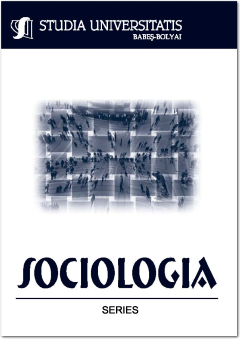
By exploring the professional trajectory of sociologist Gheorghe (George) Retegan (1916–1998), this article addresses the epistemological and personal reconfigurations of the field of social sciences in post-war Romania, highlighting the complex relations and professional rivalries in the field after the Second World War, and their consequences for social knowledge. My study explores Retegan’s published and unpublished works, archival documents, and an interview that Z. Rostás conducted with Retegan in the 1990s. I analyse three research ventures relevant for understanding Retegan’s professional trajectory and methodological choices: the 1948–1950 family budget research that Retegan coordinated at the Central Institute for Statistics; the 1957– 1959 monographic research he coordinated at the Institute for Economic Research; and his “farewell” to sociology and specialization in demography beginning in the 1960s. My article documents Retegan’s remarkable capacity to develop research by way of formulating new questions, methodologies, and techniques, on the basis of the main elements of empirical research he learned during his training in sociology under the supervision of Anton Golopenția. Retegan’s contributions to the field of empirical social research suggest how a context that was generally unfavourable for the development of social sciences (1948–1965) could be used in a creative way for the study of the social world. Epistemologically, the survival and even innovation of empirical research under unfavourable ideological and political conditions made possible the rehabilitation of sociology as a discipline in the much more favourable context of the second half of the 1960s.
More...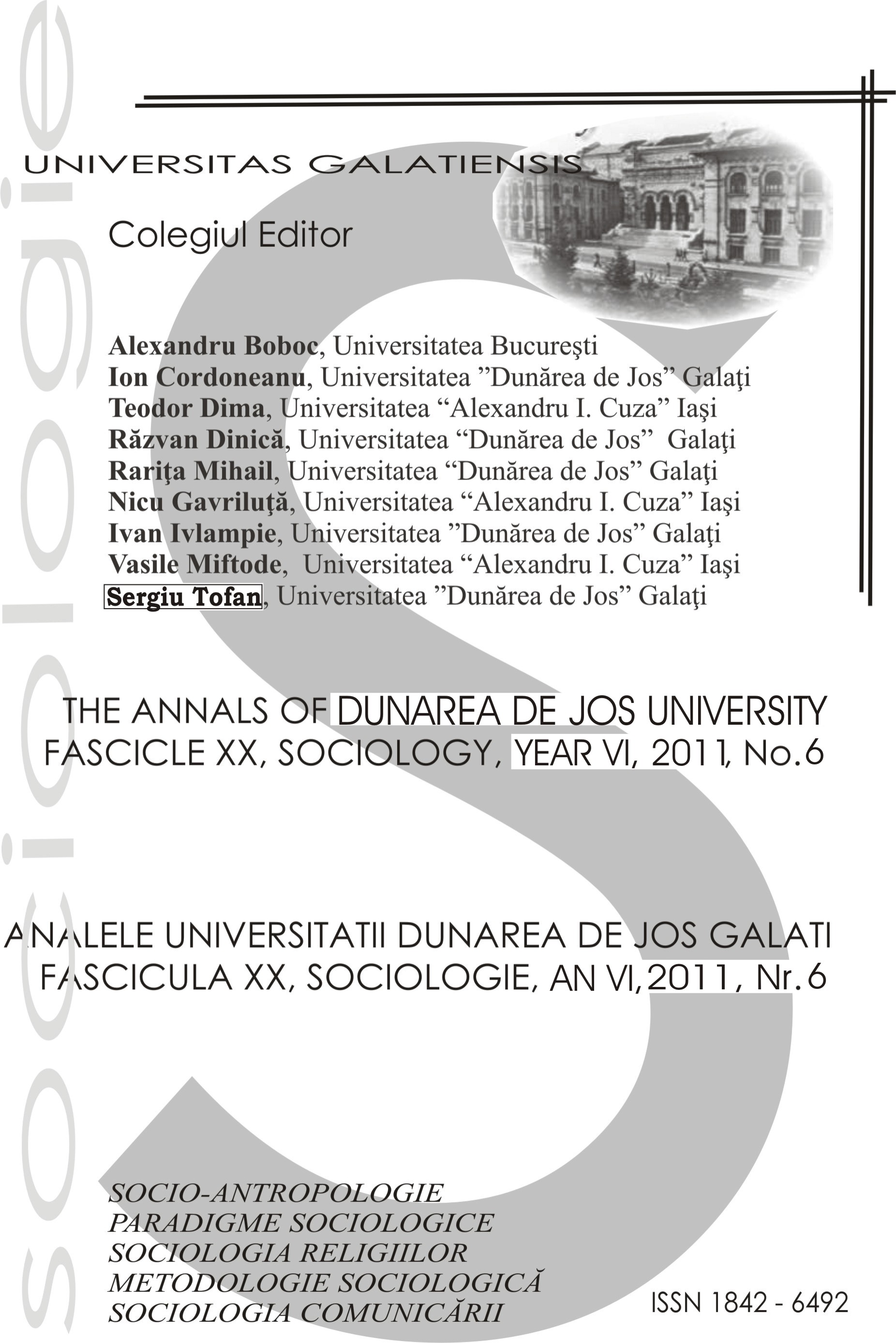
Émile Durkheim's project of founding institutional sociology has a moral purpose: to encourage the obedience of social order in terms of moral crisis of the time. In this article, we follow Durkheim's efforts to identify new sources of morality and to clarify the necessary ethics of (re)building social structures. Moral vocation of sociology is emerging as Durkheim forwards in research on the evolution of social laws. In building his vision, Durkheim reported his works continuously to his predecessors and contemporaries, as demonstrated in this paper.
More...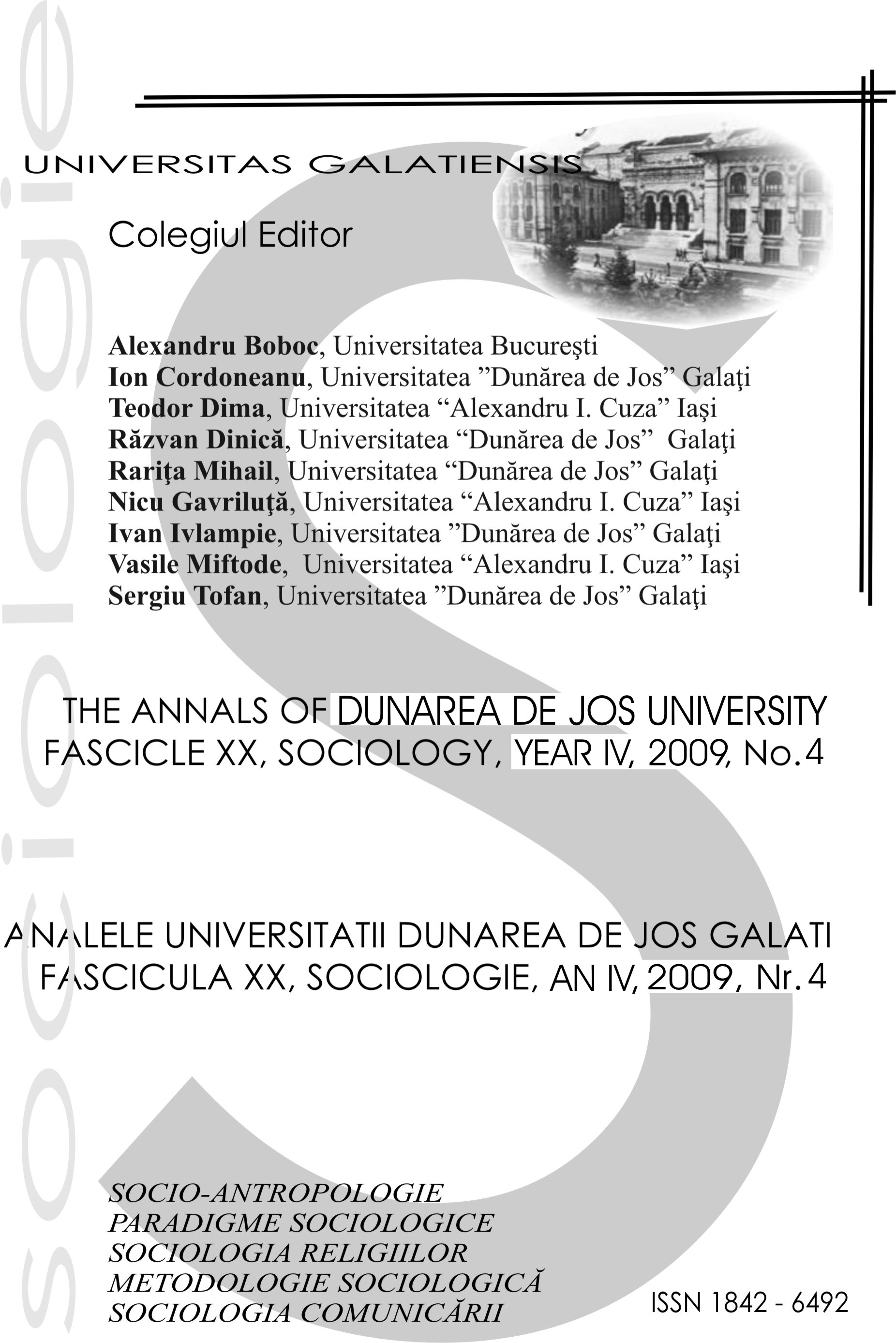
In this paper I explore the communication strategies employed by the Romanian professor Dimitrie Gusti (1880-1955), the founder of the Bucharest School of Sociology, in his various activities and endeavors. I will start by investigating his efforts to popularize innovations in university organization and in field research methods. I will also examine Gusti’s activities within the “Prince Carol” Royal Cultural Foundation and the methods he used to promote a new system of social intervention in villages of Romania. Furthermore, I will analyze the practices Gusti used to promote Romanian sociology abroad and, within this broad framework, I will deal in particular with the organization of an international congress of sociology planned to take place in Romania. Finally, I will look at the activities he undertook in his position of General Commissary of the Romanian pavilions included the International Exhibitions of Paris (1937) and New York (1939), which were widely and highly appreciated.
More...
Mathematics is seen as a type of intellectual discourse, with practical implications that govern all knowledge that is meant to be scientific and experimental. The debate on mathematics is extrapolated to the level of society: society is a type of real entity, an organism with specific modes and legacies. On this point, we try to see how the "gradual social engineering" proposed by Popper, becomes practicable.There is no such thing as an ideal of mathematics or of society; neither in mathematics nor in society do we operate with an absolute that is going to be implanted; gradual social engineering does not claim to have a large impact on society, it is always experimenting; at the same time, constructivism and gradual engineering oppose irrationalism, radicalism and relativism; mathematical language, like that of social norms, consists of language games that arise from deeply rooted norms and particularly enduring and stable models, but which always remain open to the possibility of long-term change.
More...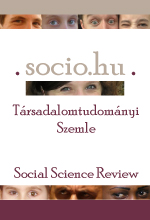
From the point of view of philosophy it is the theory of collective representations and the later theory of categorization that seems to be the most important part of Durkheim’s oeuvre. The theory of collective representation has played a significant role in the debates on the theory of sciences in the last decades of XIXth. century on the one hand, and has influenced the contemporary pragmatic philosophy on the other. The article presents first Durkheim’s theoretical struggle with the predominant neokantian tendency, then, in the second step, aims to analyze and to evaluate Durkheim’s conception on categorization partly in his famous essay on categorization written with Mauss, partly in his late works.
More...